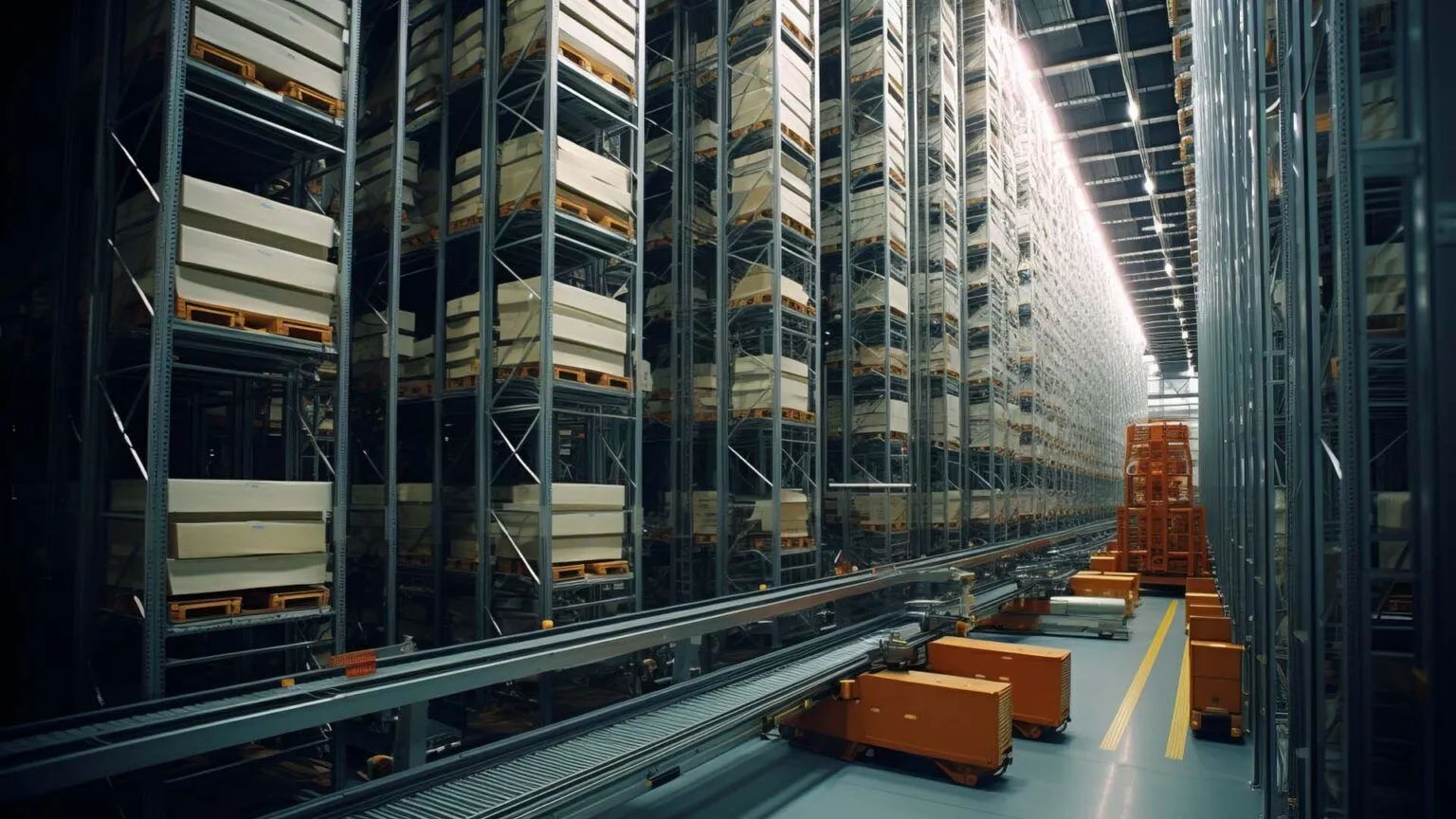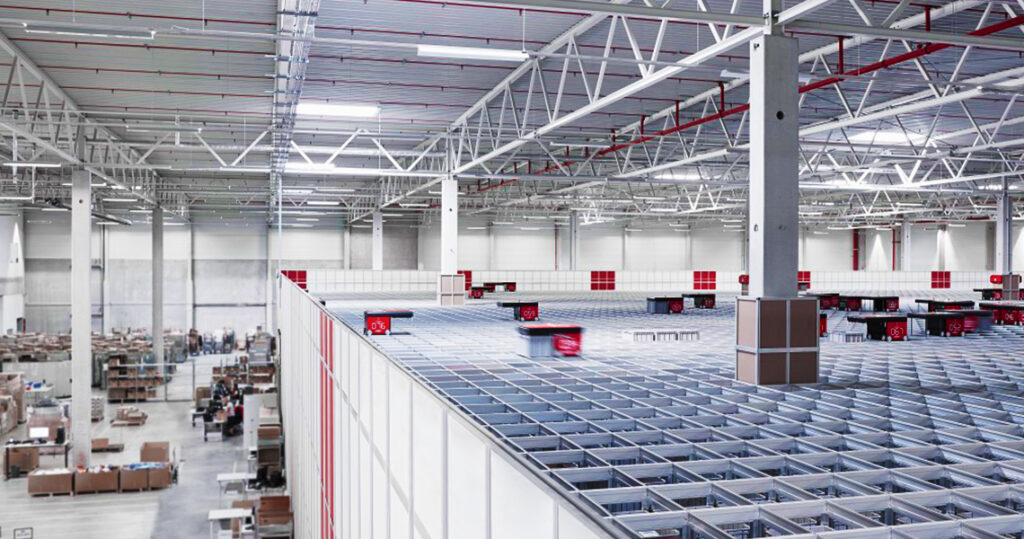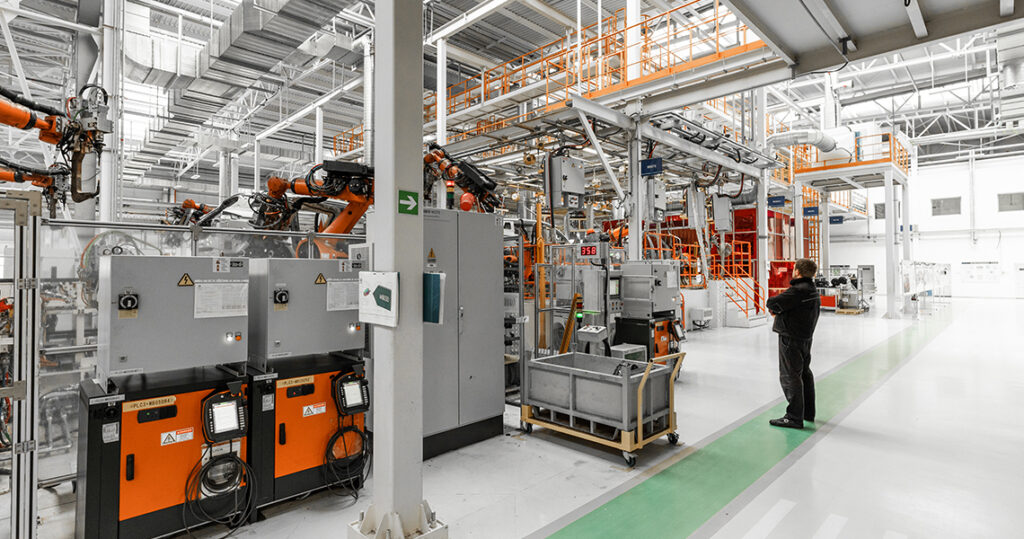
Powering Productivity with
Automation

Automation
Automation is a powerful driver of business growth. By increasing efficiency, reducing costs, and enabling scalability, automation empowers businesses to operate more effectively and compete in the global marketplace.Additionally, automation enhances customer experiences, supports data-driven decision-making, and fosters innovation, all of which contribute to sustained growth and long-term success. As technology continues to evolve, the role of automation in business will only become more integral, offering even greater opportunities for growth and development.

Smart Factory
A Smart Factory represents the pinnacle of modern manufacturing, where advanced technologies like the Internet of Things (IoT), artificial intelligence (AI), robotics, and big data converge to create a highly efficient, responsive, and automated production environment. This concept is a key component of Industry 4.0, the fourth industrial revolution, which focuses on the integration of digital technologies in manufacturing.
Fixed (Hard) Automation
Fixed automation involves the use of specialized equipment designed to perform a specific task or a set of tasks. The system is rigid and cannot be easily reconfigured for other tasks.
Application: High-volume production environments, such as assembly lines in the automotive industry, where the same product or parts are produced repeatedly.
Advantages: High production rates, cost efficiency for large-scale production.

Streamlining Operations: Automation reduces the time and effort required to complete repetitive tasks, allowing employees to focus on more strategic activities. This leads to faster processing times and increased productivity across the organization.
24/7 Operations: Automated systems can operate continuously without breaks, enabling businesses to maintain productivity round the clock. This is particularly beneficial for customer service, manufacturing, and data processing tasks.
Labor Cost Savings: By automating repetitive and time-consuming tasks, businesses can reduce the need for manual labor, lowering operational costs. This is especially significant in industries like manufacturing, where labor costs can be a major expense.
Minimized Errors: Automation reduces the risk of human error, which can lead to costly mistakes. This accuracy in tasks like data entry, billing, and inventory management helps avoid financial losses and improves overall efficiency.
Real-Time Analytics: Automation enables real-time data collection and analysis, providing businesses with insights that inform better decision-making. Automated systems can track key performance indicators (KPIs), monitor market trends, and predict customer behavior.
Enhanced Reporting: Automated reporting tools generate detailed reports with minimal manual input, allowing business leaders to make informed decisions quickly.
Handling Increased Demand: Automation allows businesses to scale their operations quickly without the need for proportional increases in workforce or infrastructure. For example, an e-commerce business can handle a surge in orders during peak seasons by automating order processing and inventory management.
Flexible Expansion: Automated systems can be easily expanded or upgraded to accommodate growth, enabling businesses to enter new markets or increase production without significant additional investments.
Faster Response Times: Automation in customer service, such as chatbots and automated email responses, ensures that customer inquiries are handled promptly, improving customer satisfaction.
Personalization: Automated marketing tools can analyze customer data to deliver personalized experiences, such as targeted promotions or product recommendations, which enhance customer loyalty and drive sales.
Enabling Innovation: By freeing up resources and reducing operational burdens, automation allows businesses to focus on innovation and product development. Companies can invest time and money into creating new products, services, or business models that differentiate them from competitors.
Staying Ahead of Competitors: Early adoption of automation technologies can give businesses a competitive edge by enabling them to operate more efficiently, offer better customer experiences, and innovate faster than competitors.
GET IN TOUCH